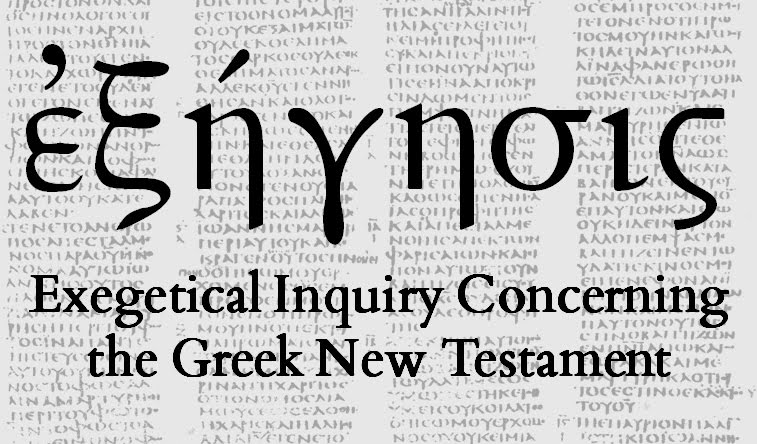Since the annual meetings of the ETS in Atlanta have ended many words have been written concerning N. T. Wright’s comments made during the final day of the conference. I have contributed my own comments commending Tom Wright for making more clear what I believe he always meant even though his phraseology has tended to confuse readers.
It is fitting, therefore, for me to point out that Tom Wright’s expression of surprise over the confusion of what he meant has evident warrant. Consider his lecture at Rutherford House title “New Perspectives on Paul.” He makes the following statements. The third point is remarkably controversial, seeing how well founded it is at several points in Paul. Indeed, listening to yesterday’s papers, it seems that there has been a massive conspiracy of silence on something which was quite clear for Paul (as indeed for Jesus). Paul, in company with mainstream second-Temple Judaism, affirms that God’s final judgment will be in accordance with the entirety of a life led – in accordance, in other words, with works. He says this clearly and unambiguously in Romans 14.10–12 and 2 Corinthians 5.10. He affirms it in that terrifying passage about church-builders in 1 Corinthians 3. But the main passage in question is of course Romans 2.1–16.
The ‘works’ in accordance with which the Christian will be vindicated on the last day are not the unaided works of the self-help moralist. Nor are they the performance of the ethnically distinctive Jewish boundary-markers (sabbath, food-laws and circumcision). They are the things which show, rather, that one is in Christ; the things which are produced in one’s life as a result of the Spirit’s indwelling and operation.
And we now discover that this declaration, this vindication, occurs twice. It occurs in the future, as we have seen, on the basis of the entire life a person has led in the power of the Spirit – that is, it occurs on the basis of ‘works’ in Paul’s redefined sense. And, near the heart of Paul’s theology, it occurs in the present as an anticipation of that future verdict, when someone, responding in believing obedience to the ‘call’ of the gospel, believes that Jesus is Lord and that God raised him from the dead. This is the point about justification by faith – to revert to the familiar terminology: it is the anticipation in the present of the verdict which will be reaffirmed in the future.
I am fascinated by the way in which some of those most conscious of their reformation heritage shy away from Paul’s clear statements about future judgment according to works. It is not often enough remarked upon, for instance, that in the Thessalonian letters, and in Philippians, he looks ahead to the coming day of judgment and sees God’s favourable verdict not on the basis of the merits and death of Christ, not because like Lord Hailsham he simply casts himself on the mercy of the judge, but on the basis of his apostolic work. ‘What is our hope and joy and crown of boasting before our Lord Jesus Christ at his royal appearing? Is it not you? For you are our glory and our joy.’ (1 Thess. 3.19f.; cp. Phil. 2.16f.) I suspect that if you or I were to say such a thing, we could expect a swift rebuke of ‘nothing in my hand I bring, simply to thy cross I cling’. The fact that Paul does not feel obliged at every point to say this shows, I think, that he is not as concerned as we are about the danger of speaking of the things he himself has done – though sometimes, to be sure, he adds a rider, which proves my point, that it is not his own energy but that which God gives and inspires within him (1 Cor. 15.10; Col. 1.29). But he is still clear that the things he does in the present, by moral and physical effort, will count to his credit on the last day, precisely because they are the effective signs that the Spirit of the living Christ has been at work in him. We are embarrassed about saying this kind of thing; Paul clearly is not. What on earth can have happened to a sola scriptura theology that it should find itself forced to screen out such emphatic, indeed celebratory, statements?
Given the clear fact that Tom Wright uses the expressions “in accordance with” and “on the basis of” interchangeably, as demonstrated above, does it not behoove us all to grant him the benefit of the doubt that he really does mean what he explained during his ETS presentation? My hope is that Tom Wright will employ the clearer expression and avoid the expression that introduces confusion. But I also hope that American evangelicals will be more generous readers and hearers as they continue to engage Tom Wright’s always thought-provoking presentations and essays.
*I have purposely not highlighted the crucial phrasing so as to constrain all to read the entirety of the citations to get the point.

